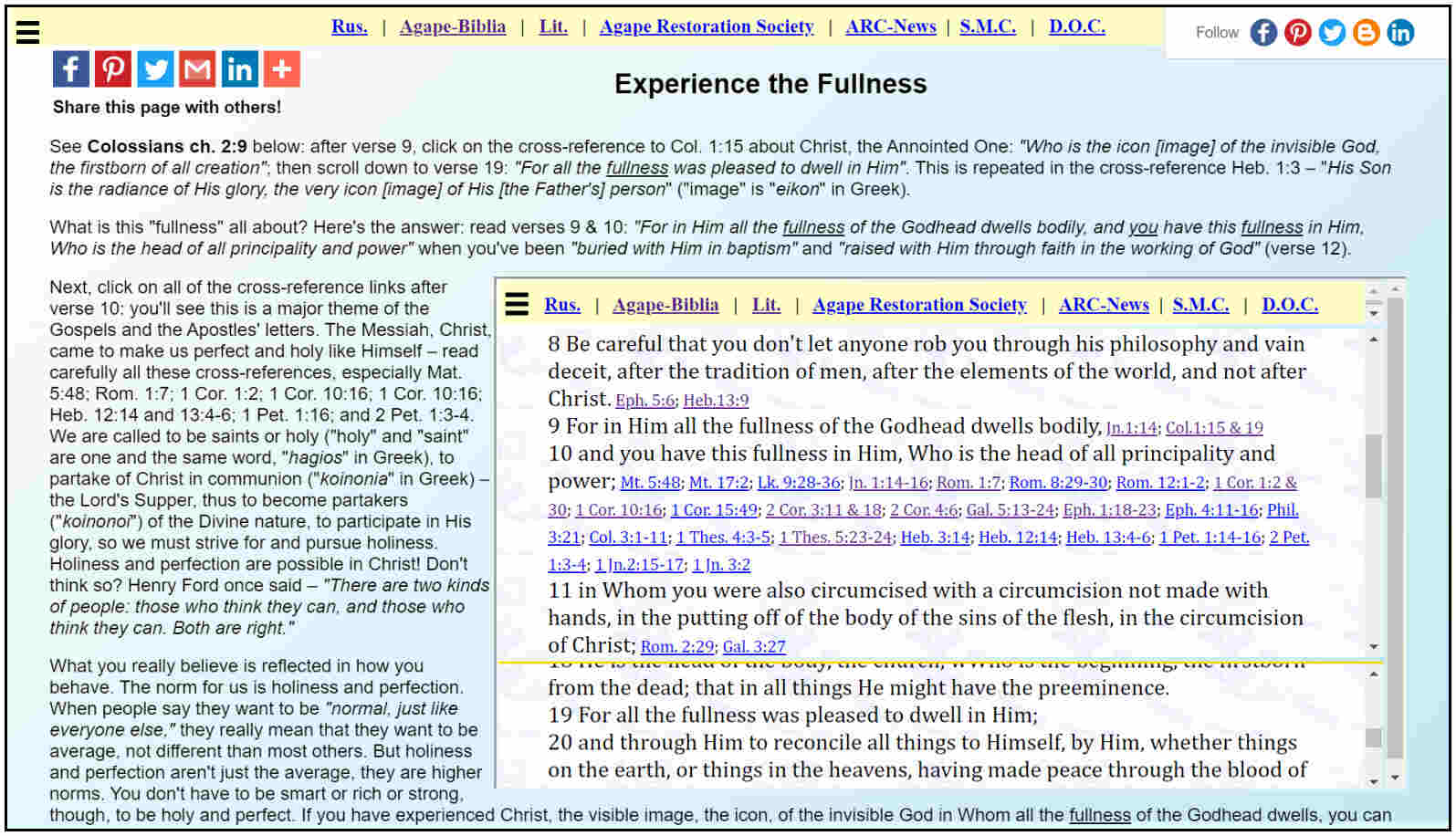A CALL TO SANCTIFICATION
God's will for us is our sanctification (Romans 12:1) – He wants us to become holy ("saint" and "holy" are the same word in Greek and other languages) – "Saint Jerry" or "Saint Sally." The Lord wants us to  Experience the Fullness of His glory, to be transformed into His likeness.
Experience the Fullness of His glory, to be transformed into His likeness.
In order for that to happen, though, we must strengthen the weak believers but not have communion/fellowship (the same word, "koinonia" in Greek) with unbelievers or false believers – "hirelings." The call to sanctification is also a call to separation from worldly activities and behavior:
"Do not be unequally yoked with unbelievers, for what fellowship has righteousness with iniquity? Or what communion has light with darkness? What agreement has Christ with Belial? Or what portion has a believer with an unbeliever? What agreement has a temple of God with idols? For you are a temple of the living God. Even as God said, 'I will dwell in them, and walk in them; and I will be their God, and they will be my people.' Therefore, "'Come out from among them, and be separate,' says the Lord, 'Touch no unclean thing. I will receive you. I will be to you a Father. You will be to me sons and daughters,' says the Lord Almighty." (2 Corinthians 6:14-18).
The saints of old and even those of more recent times are called "saint" or "holy" because they have been cleansed of worldly passions and lusts and have devoted themselves to the pursuit of holiness: "Strive for peace with everyone, and for the holiness without which no one will see the Lord" (Hebrews 12:14). "Therefore, seeing we are surrounded by so great a cloud of witnesses, let us also lay aside every weight and the sin which so easily entangles us" (verse 1) – may we follow their examples and Christ's example!
God created mankind in His image and likeness so that we could share in His glory. After the Fall, however, the image was marred and the likeness was destroyed: we became spiritually "dead" in our trespasses and sin (Ephesians 2:5-9) – this passage tells us about not only our spiritual death, but also about the gift of God's grace that saves us. Salvation is a life-long process of healing and restoration: the Greek word for "salvation" is "soteria" which also means "healing."
When a little child is given a present all wrapped up in shiny, colorful paper and with a pretty bow on it, the child is often fascinated with the box and the bow, so the parents say – "What's in the box? Open the box!" Grace is indeed a gift, but what's in the box? Grace is the gift of the Holy Spirit, the divine nature that restores and transforms our nature and our whole life.
But as the Old Testament scripture quotations in this photo illustrate, it's easy to get wrapped up in the side effects – health and wealth – of God's grace: Jesus, the good shepherd, wants to give us abundant life – "The thief only comes to steal, kill, and destroy. I came that they may have life, and may have it abundantly" (John 10:10). However, there are thieves, wolves in sheep's clothing, who are just in it for the money – "hirelings" who want to steal, kill, and destroy the flock. We must beware of them, not hire them, or even give them a place at the table:
"But as it is, I wrote to you not to have fellowship with anyone who is called a brother who is a sexual sinner, or covetous, or an idolater, or a slanderer, or a drunkard, or an extortioner. Don't even eat with such a person" (1 Corinthians 5:11) and "But if one of those who don't believe invites you to a meal, and you are inclined to go, eat whatever is set before you, asking no questions for the sake of conscience. But if anyone says to you, 'This was offered to idols,' don't eat it for the sake of the one who told you, and for the sake of conscience" (1 Corinthians 10:27-28).
Go to ARC-News to read our free e-newsletters and Subscribe!

No comments:
Post a Comment